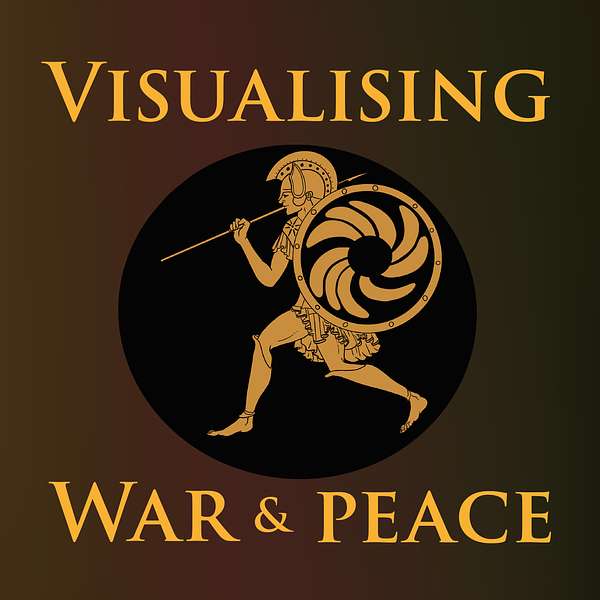
Visualising War and Peace
How do war stories work? And what do they do to us? Join University of St Andrews historian Alice König and colleagues as they explore how war and peace get presented in art, text, film and music. With the help of expert guests, they unpick conflict stories from all sorts of different periods and places. And they ask how the tales we tell and the pictures we paint of peace and war influence us as individuals and shape the societies we live in.
Visualising War and Peace
Staging Ancient and Modern War Stories with NMT Automatics
In this episode, Alice and Nicolas interview members of NMT Automatics, a theatre company which specialises in updating ancient myths for modern audiences. Co-founders Jennie Dunne and Jonathan Young have been working with director Andres Velasquez and dramaturg Mairin O'Hagan to develop a new play, Tempus Fugit: Troy and Us, which weaves together an Ancient Greek war story from Homer's Iliad with the tale of a modern military couple, Alec and Bea. The Visualising War project has been feeding into their research process, so we enjoyed catching up with them to find out how the play has evolved.
In the podcast, we talk about how ancient models of military heroism can both help and hamper our visualisations of war today, and the NMTA team explain how they use ancient characters like Hector, Achilles, Ajax and Andromache to raise important questions about how war is imagined and experienced in the 21st century. They talk about the role that theatre and storytelling can play in deepening understanding of what soldiers, civilians and families go through, and how their play ended up focusing on the experiences of the military spouse. As they explain, what partners of serving soldiers go through is not discussed very often; but those partners spend a lot of time trying to visualise the wars which their loved ones are fighting in or preparing for, so they offer a fascinating perspective from which to explore wider habits of visualising war. Along the way, we chat about the cliches that often crop up when war is represented on stage and screen, and the important work that plays like Tempus Fugit can do in challenging assumptions and offering different viewpoints.
Among other questions, we asked:
- What films/war stories shaped their habits of visualising war in the past?
- What cliches about conflict do stage and screen dramatisations tend to reinforce? And what role can theatre play in challenging those cliches?
- What can ancient war stories bring to modern understandings of war and conflict?
- What connections do they draw between the experiences of Hector and Andromache in the Trojan war and modern conflict/military culture as experienced by Alex and Bea?
- Why did they end up focusing on military spouses/partners, and what does that angle bring to the wider study of war?
- What impact do they hope their new play, Tempus Fugit, will have on military and civilian audiences?
We hope you enjoy the episode!
For a version of our podcast with close captions, please use this link. To find out more about the wider research we have been doing into dramatisations of war on stage and screen, you can read this blog.
For more information about individuals and their projects, access to resources and more, please have a look on the University of St Andrews Visualising War website.
Music composed by Jonathan Young
Sound mixing by Zofia Guertin